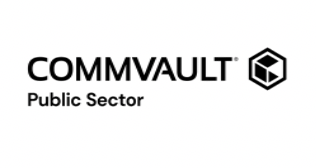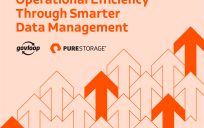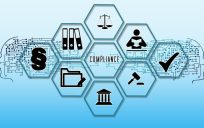To realize the full benefits of their massive and growing stores of data, government agencies need to think in new ways about data management.
Rather than coming at data management strictly from a technology perspective, they need to look at how they can get that data into the hands of their decision-makers, according to two subject matter experts at GovLoop’s Dec. 3 Briefing Center on data protection and management.
The speakers – Scott Beliveau, Branch Chief, Advanced Analytics, at the United States Patent and Trademark Office, and Kevin Zawodzinski, Vice President, Federal Sales at Commvault – suggested three points of focus for agencies going forward.
Think Beyond Data Visibility
One of the most common concerns about government data is the problem of “dark data” — data that is in the system and potentially useful but that is not readily visible or accessible to the people who might use it.
Beliveau noted that the concept of visibility has evolved in recent years. Initially, agencies focused on making data more accessible, both internally and (where appropriate) externally. Now the task is to make that data more “constructive,” that is, easier to use in the decision-making process, he said.
Zawodzinski agreed, saying it was less about making data generally accessible and more about making sure the right data gets into the right hands. “We need to ask, what do people need, and how do we help facilitate that?” he said.
Create a Single Source of Truth
The term “single source of truth” refers to the goal of ensuring that everyone in a decision-making process is looking at the same data. This is essential to the concept of data-driven decision-making.
But if “single source” is taken to mean a single store of data, agencies are not likely to achieve that in the foreseeable future, given the countless legacy systems and data formats in their data centers. Instead, the challenge is to find a “ubiquitous way to connect dots across different infrastructures,” Zawodzinski said.
For example, while the cloud is taking an increasingly important role in making data available, it is still just one distribution channel among many that agencies will use, both speakers said.
Elevate the Discussion
Discussions about data management have a tendency to gravitate toward technical concerns. In short, data is seen as the providence of the IT department and data scientists. That needs to change.
For example, consider data security and privacy. Obviously, the IT department is responsible for ensuring the security and privacy of data. But what level of security is appropriate for a given data set, and what privacy concerns are associated with it? IT needs to look to the business or operational side of the house to get that context.
“It is the business owners who really can make those decisions, and IT is the facilitator of that,” said Zawodzinski. “It is important to have everyone at the table.”
In the same way, IT experts and data scientists need to work with decision-makers and data consumers to understand what data is contextually relevant to the work they are doing, he said. “People have really woken up to the fact that we can’t do this in a bubble.”
Those kinds of discussions reflect the growing understanding that data is a strategic asset, and not just a data center resource, said Beliveau. “We are trying to get away from that ‘Tower of Data Babel’ and allow the decision-makers to focus on the value of the decisions they need to make,” he said.
This online training was brought to you by:






Leave a Reply
You must be logged in to post a comment.